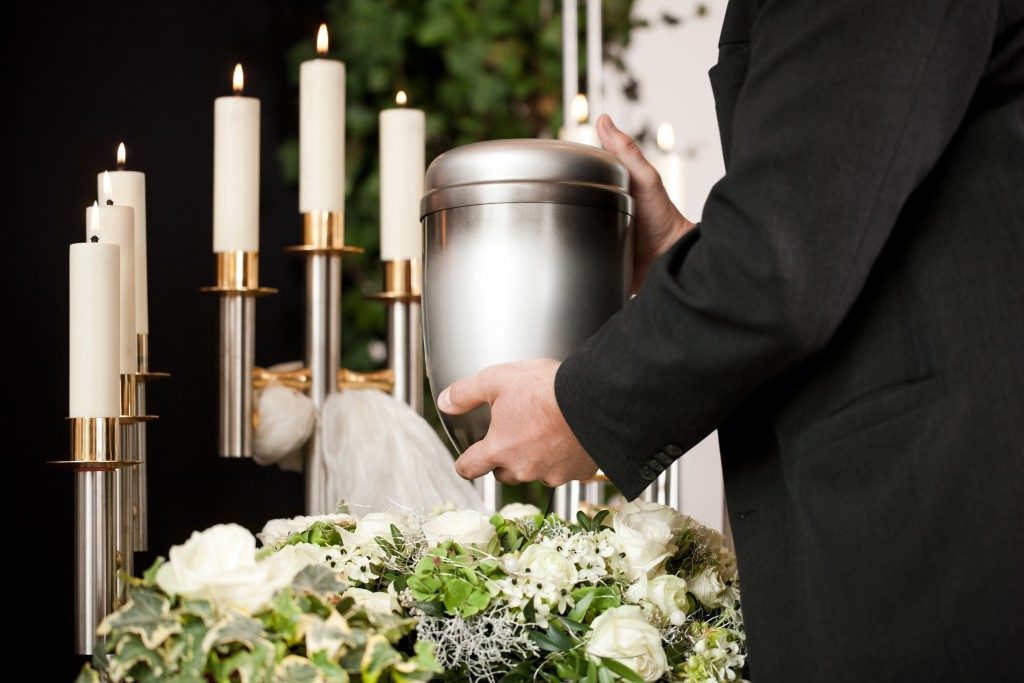A funeral is among the most personal events that an individual has to celebrate in their lives, albeit not being there. As such, the wishes and ideas of the deceased must be honoured.
Funerals range from the traditional services carried out at a synagogue, church, mosque, or funeral homes to more alternative options such as burial at sea. Read on to explore the various options available as you choose among the different funeral packages available in the United Kingdom.
Humanist and Civic Funerals
This funeral type is strictly non-religious, and it focuses on celebrating a life well lived as opposed to acknowledging and highlighting an afterlife. It can be held at the burial site, at home, in a hall, or at a graveside or cremation site. During the entire ceremony, the deceased life remains the focal point, where the celebrant draws a unique profile of the deceased. Family and friends are invited to add to the memories of the deceased.
Burial at Sea
While authorities do not encourage burials at sea, they still happen, with latest research counting at least 50 burials every year. However, burial at sea comes with stringent government rules to ensure the safety of marine life. There are at least three points in England where you can carry out your burial ceremony. These include; west of the Isle of Wight, East Sussex Coast, and North East at Tynemouth. Scotland has set aside at least two areas located off the west coast.
Woodland and Green Funerals
Thanks to the significant surge in environmental awareness for the past couple of years, a majority of people are now considering eco-friendly funerals to preserve the environment. With the constrained cemeteries spaces, and with the emissions and phosphates issues that come with cremation, woodland and meadow burials are now a major consideration.
There are plenty of natural burial sites in the UK, most of which are accredited by the Natural Death Center. A biodegradable coffin with a body is buried no more than two feet deep to minimise methane emissions. Note that a woodland burial does not necessarily exclude a religious service from being conducted. Therefore, you may, or you may not include a religious service.
Cremation
 Cremation, which involves the incineration of the deceased, takes up 70% of all funeral ceremonies in the UK. In most cases, the ceremony is held in a room in the crematorium or a chapel. Sometimes, the service is conducted in places of worship, with family only or family and friends proceeding to the crematorium later on. However, cremation also comes with its set of environmental concerns regarding the chemicals emitted from the ashes and the energy consumed during cremation. Most crematoria have upgraded their facilities to curb these concerns, but this has made their services more expensive. As such, in the end, cremation becomes more costly than the traditional funeral.
Cremation, which involves the incineration of the deceased, takes up 70% of all funeral ceremonies in the UK. In most cases, the ceremony is held in a room in the crematorium or a chapel. Sometimes, the service is conducted in places of worship, with family only or family and friends proceeding to the crematorium later on. However, cremation also comes with its set of environmental concerns regarding the chemicals emitted from the ashes and the energy consumed during cremation. Most crematoria have upgraded their facilities to curb these concerns, but this has made their services more expensive. As such, in the end, cremation becomes more costly than the traditional funeral.
It’s always important to think about and consider the various funeral types available while you’re still healthy. This way, you will save your loved ones from making a hasty, uninformed decision during the most stressful times in their lives. Selecting a funeral type makes it easy and clear of where and how to go about your funeral ceremony.






